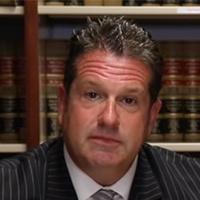Plainview Criminal Lawyer, New York
Sponsored Law Firm
-
 x
x

Click For More Info:
-
Law Office Of Vincent Bianco Esq., P.C.
114 Old Country Road Suite 560 Mineola, NY 11501» view mapCriminal Law Where Every Client Matters
Vincent Bianco is a practicing lawyer in the state of New York who handles Criminal matters.
800-779-3490
Darren M. Shapiro
✓ VERIFIEDDivorce & Family Law, Lawsuit & Dispute, Criminal, Juvenile Law, Real Estate
Since the firm's inception, Darren M. Shapiro, Esq. has been focusing on matrimonial and family law. His background in civil litigation and criminal d... (more)
Jeffrey Edward Litman
✓ VERIFIEDAccident & Injury, Bankruptcy & Debt, Criminal, Estate
Eugene Litman, Esq. established Litman & Litman, P.C. in 1958. Eugene raised his four sons with aspirations that they would join him in the legal prof... (more)
Claudia L Bauer
Criminal, Family Law, Personal Injury, Real Estate, Workers' Compensation
Status: In Good Standing
Stacey A. Bastone
Litigation, Affirmative Action, Employee Rights, White Collar Crime
Status: In Good Standing
Douglas M Lieberman
Arbitration, Criminal, Collection, Animal Bite
Status: In Good Standing Licensed: 38 Years
James C Markotsis
Arbitration, Criminal, Business Successions, Animal Bite
Status: In Good Standing Licensed: 38 Years
Andrew L. Crabtree
Criminal, Employment, Lawsuit & Dispute, Real Estate
Status: In Good Standing Licensed: 32 Years
Frederick Vogeney
Immigration, Divorce & Family Law, Criminal, Accident & Injury
Status: In Good Standing
FREE CONSULTATION
CONTACT Vincent Bianco Mineola, NY
Vincent Bianco Mineola, NY AboutLaw Office of Vincent Bianco, Esq., P.C.
AboutLaw Office of Vincent Bianco, Esq., P.C. Practice AreasExpertise
Practice AreasExpertise



